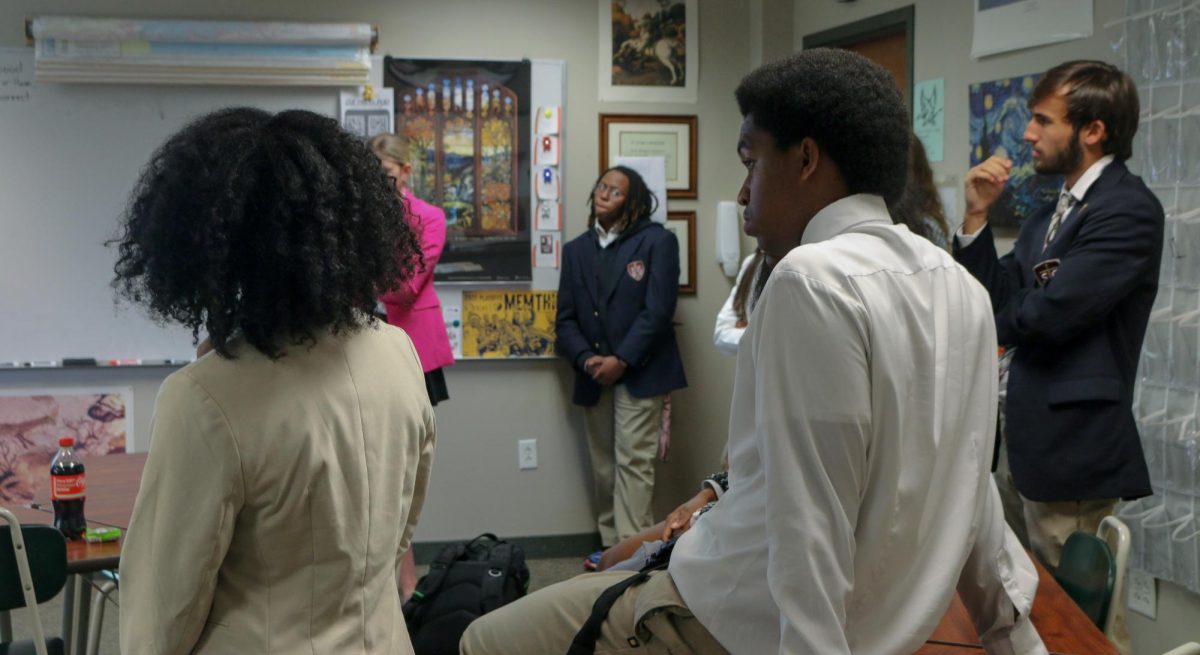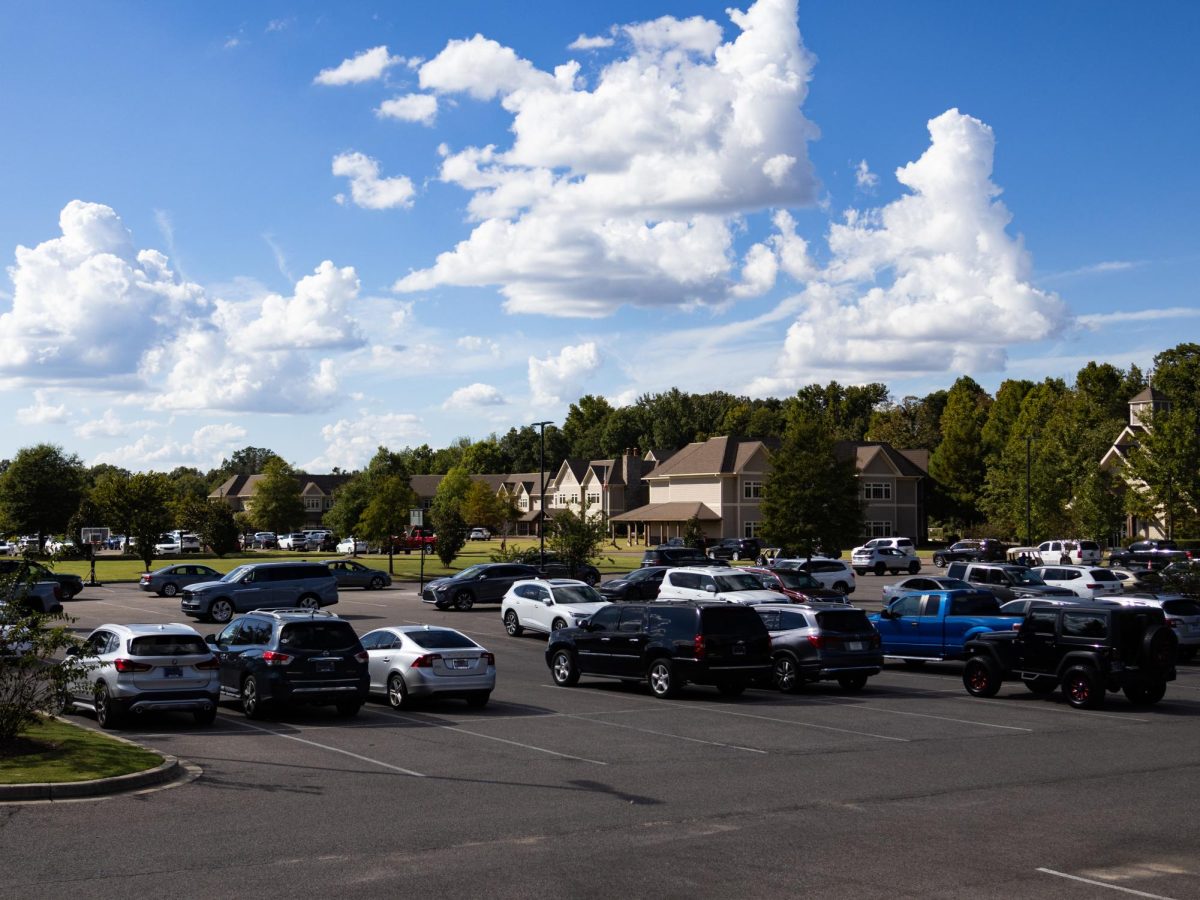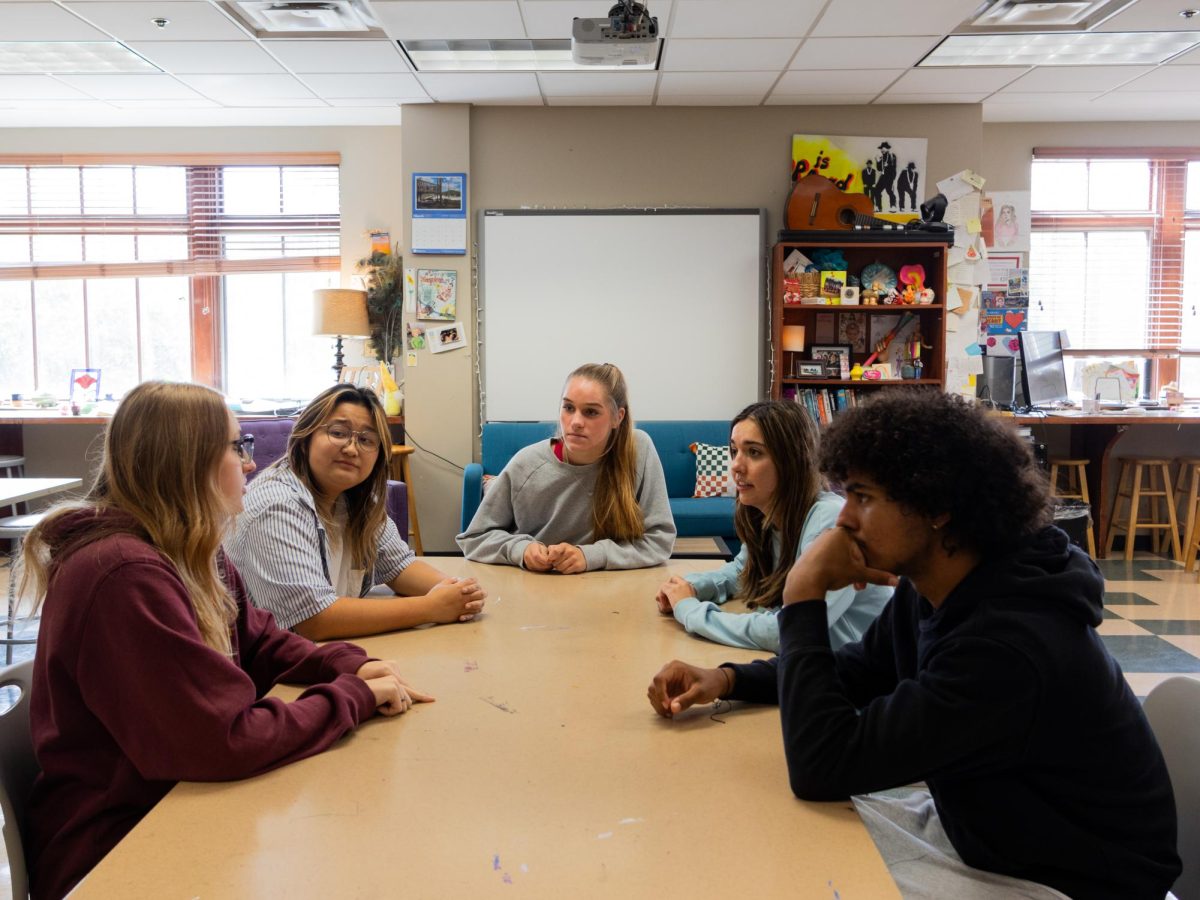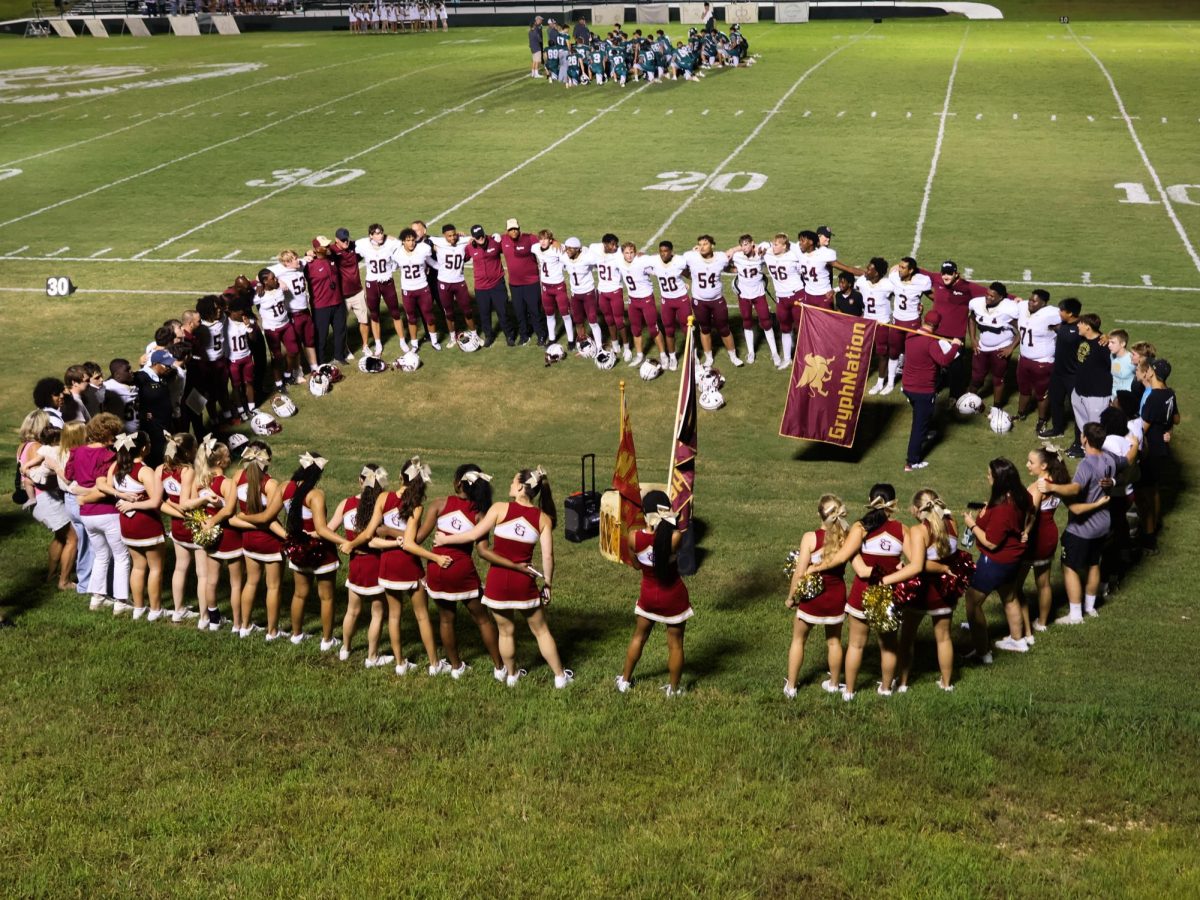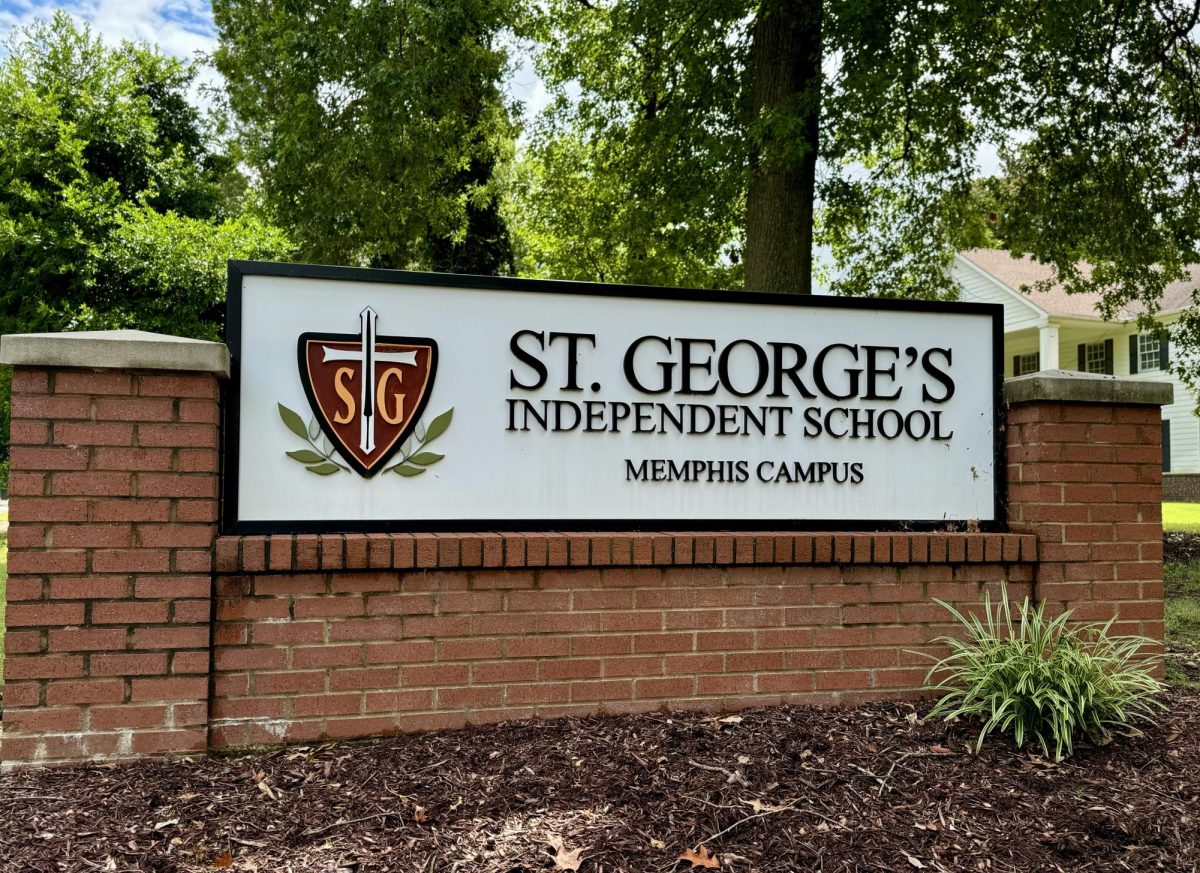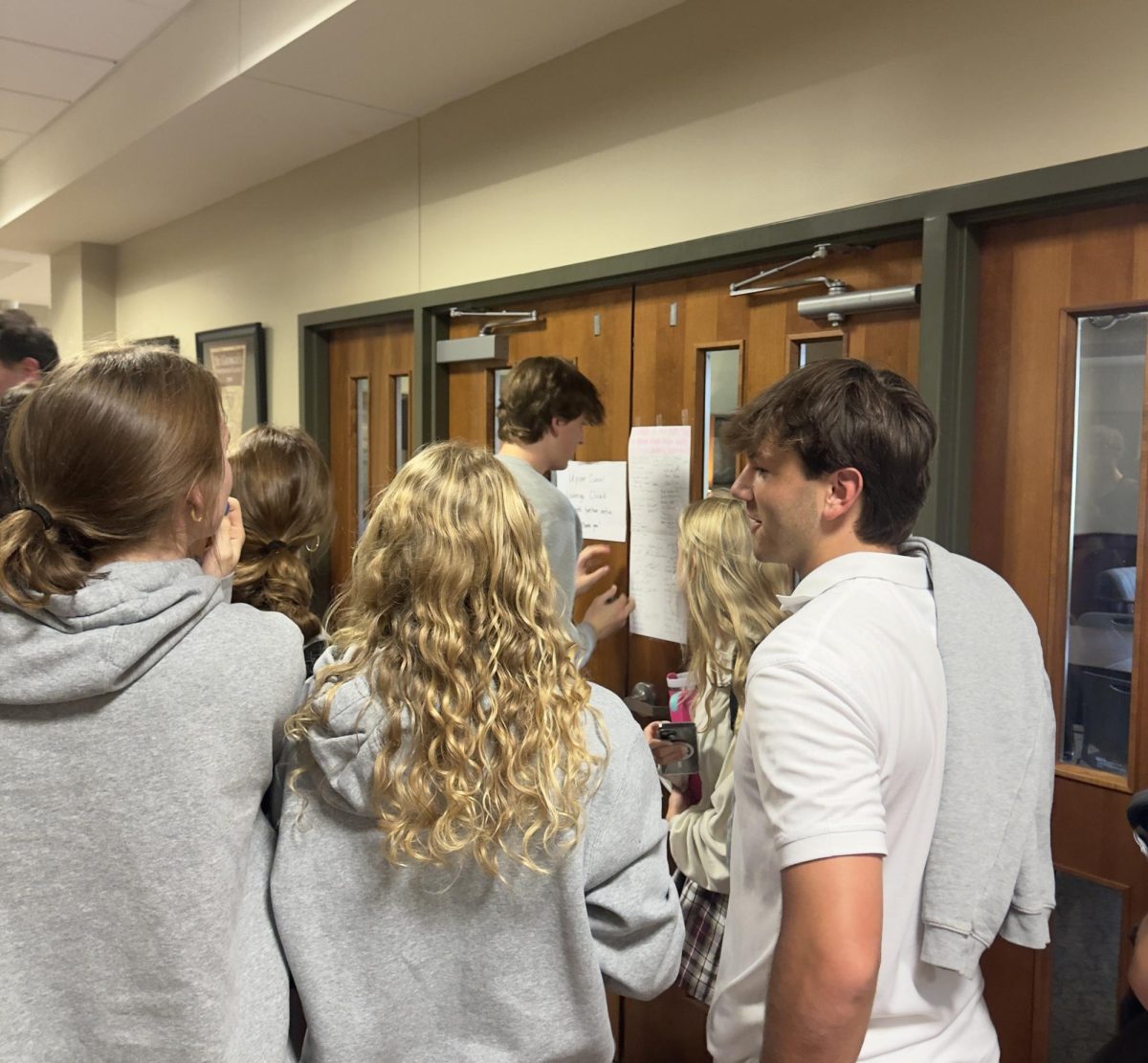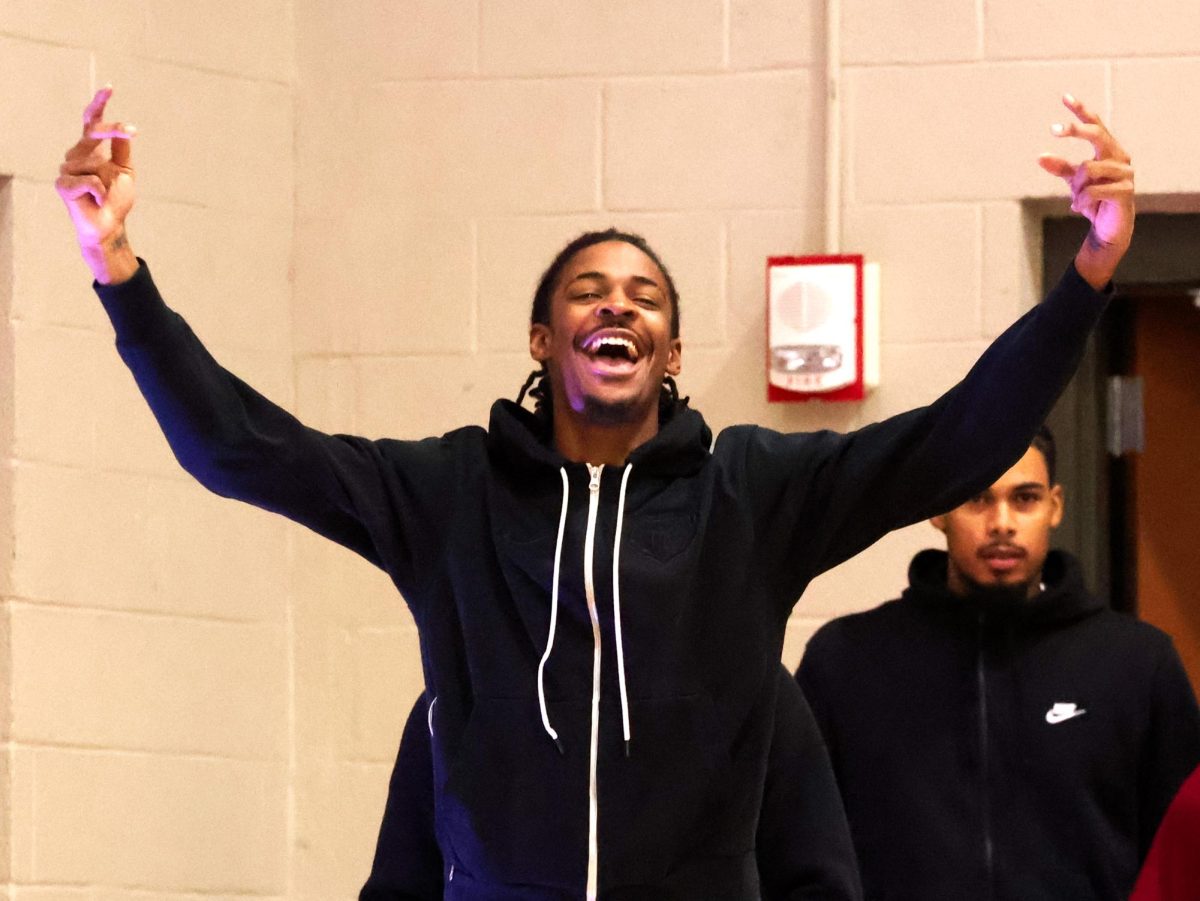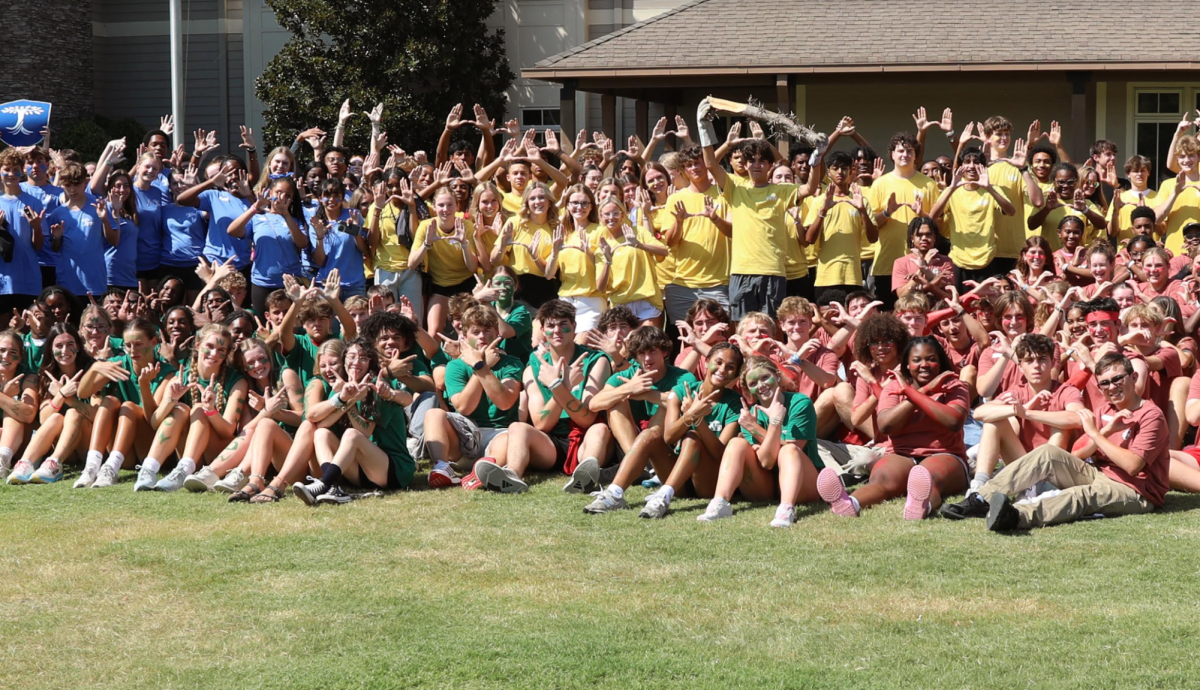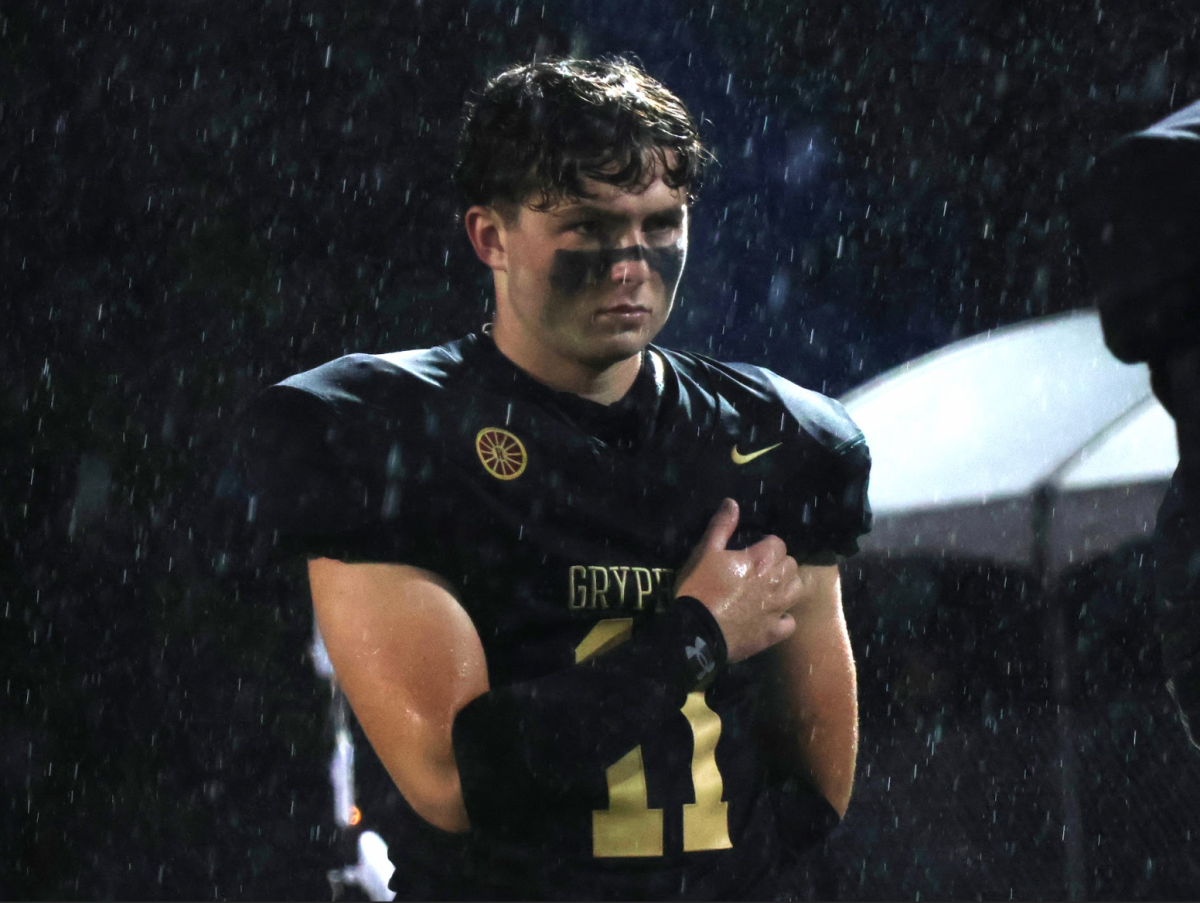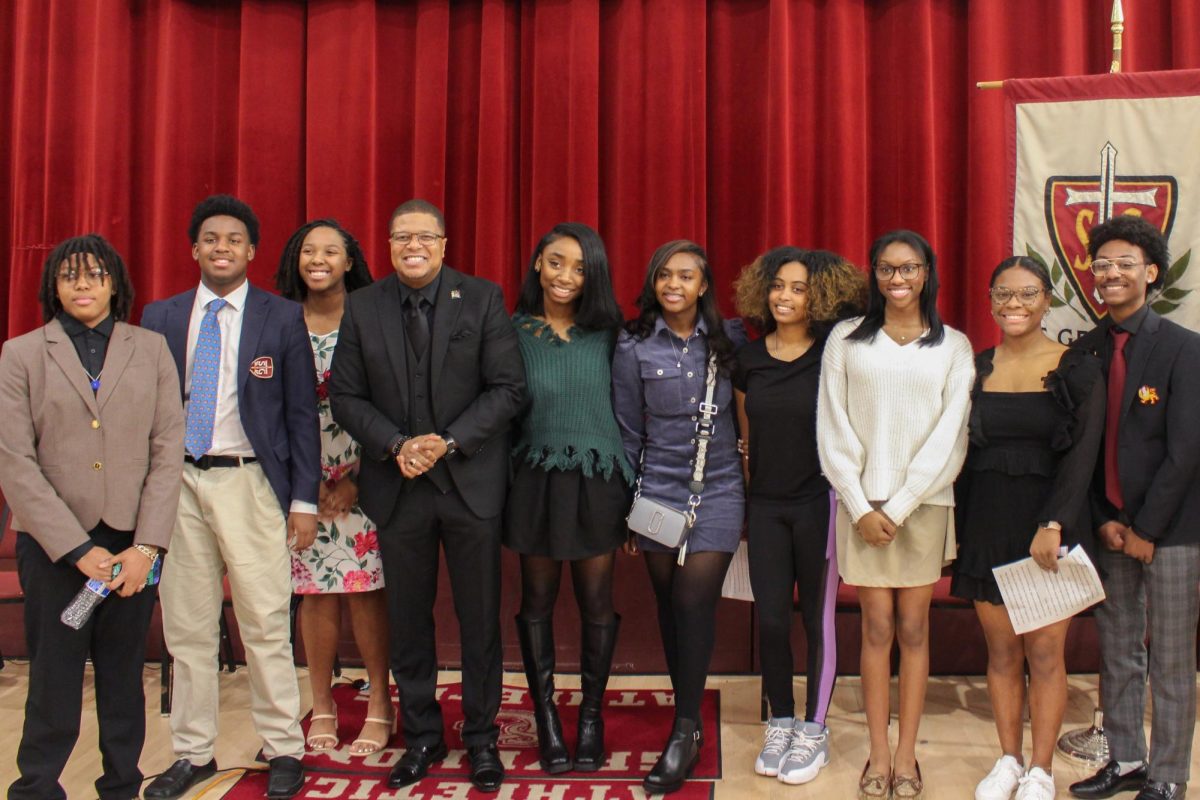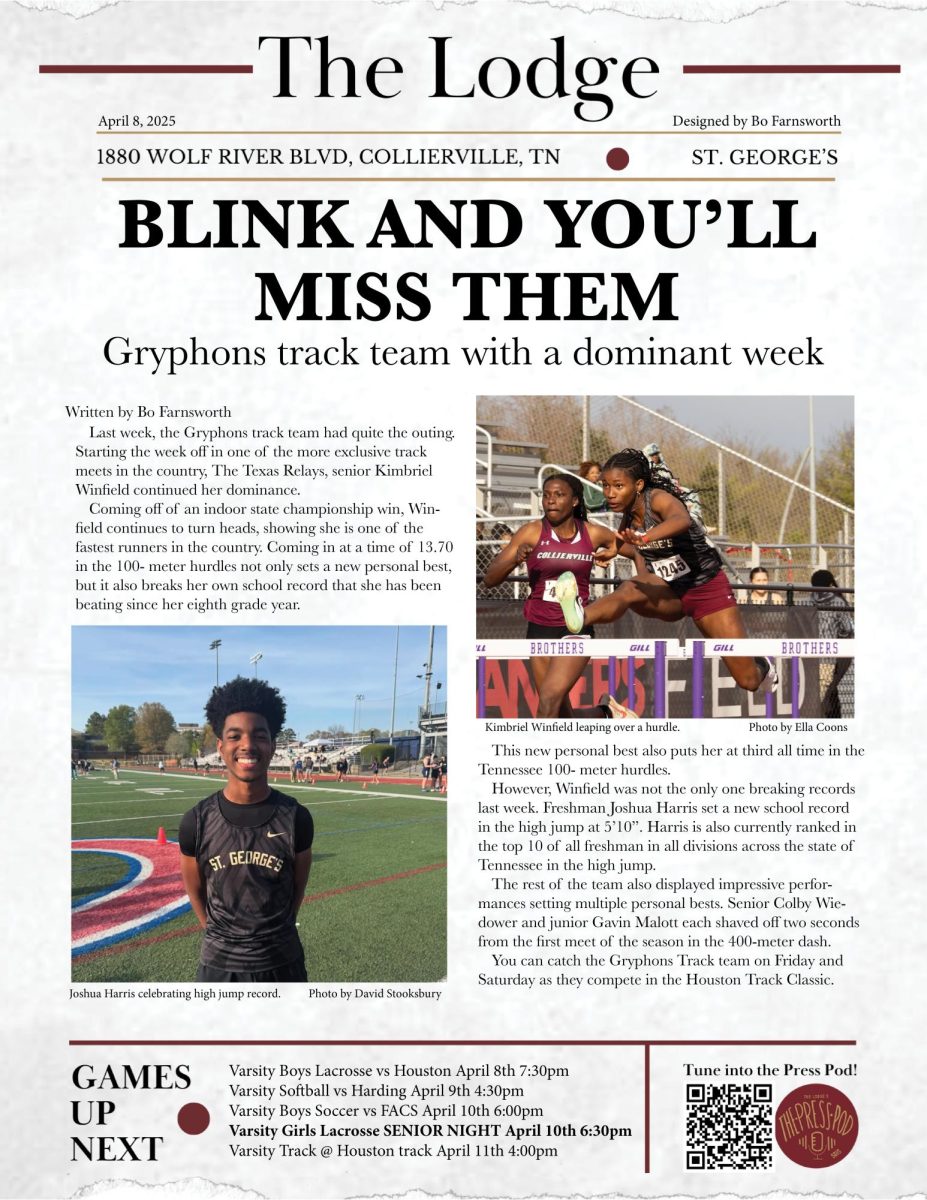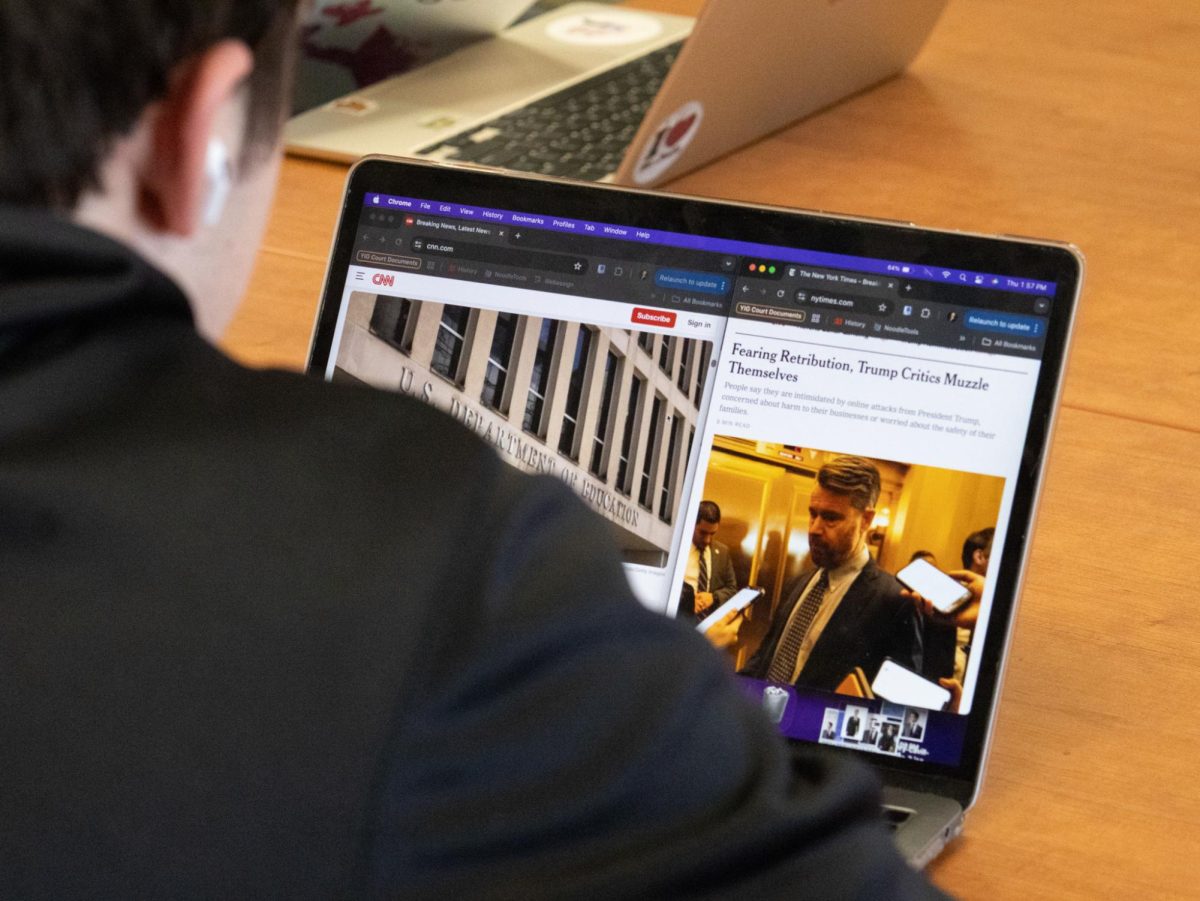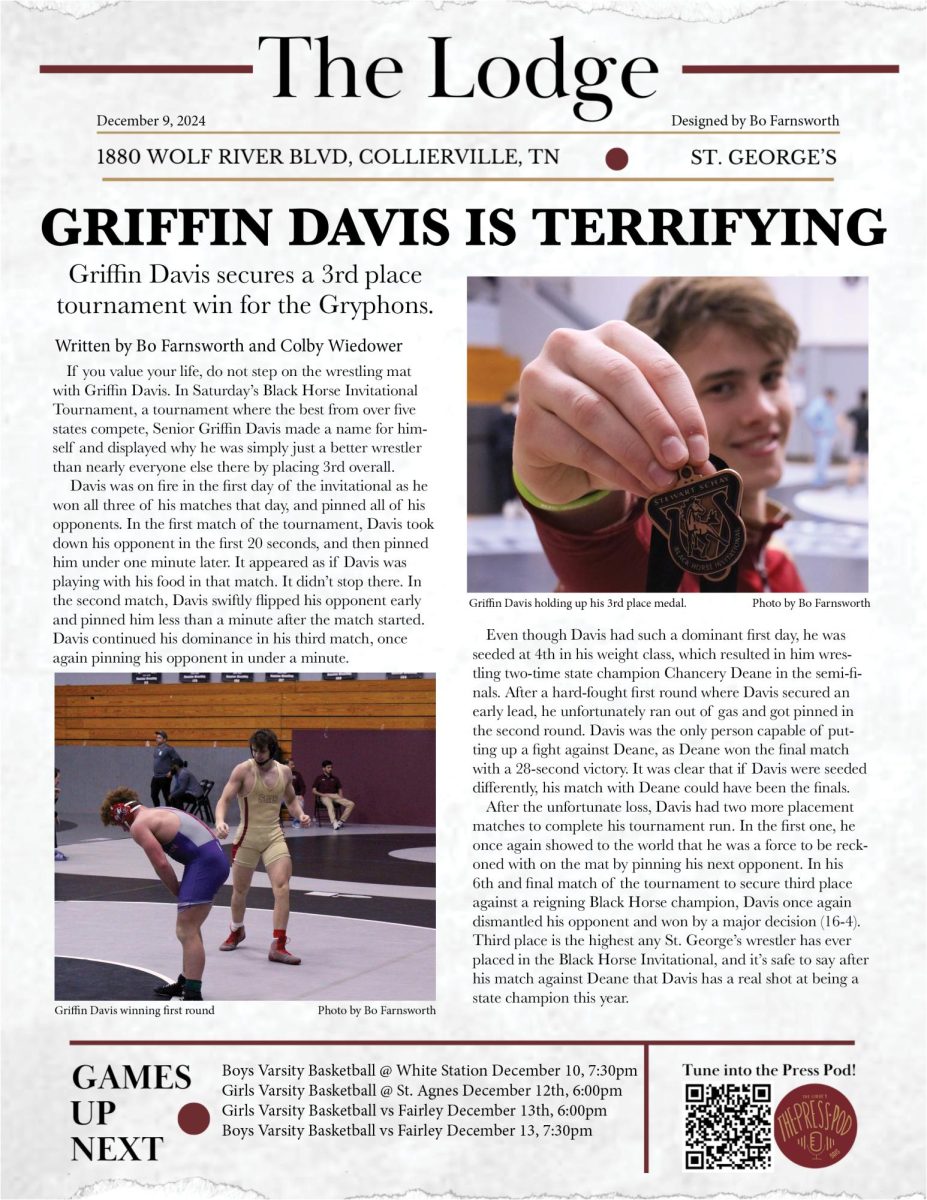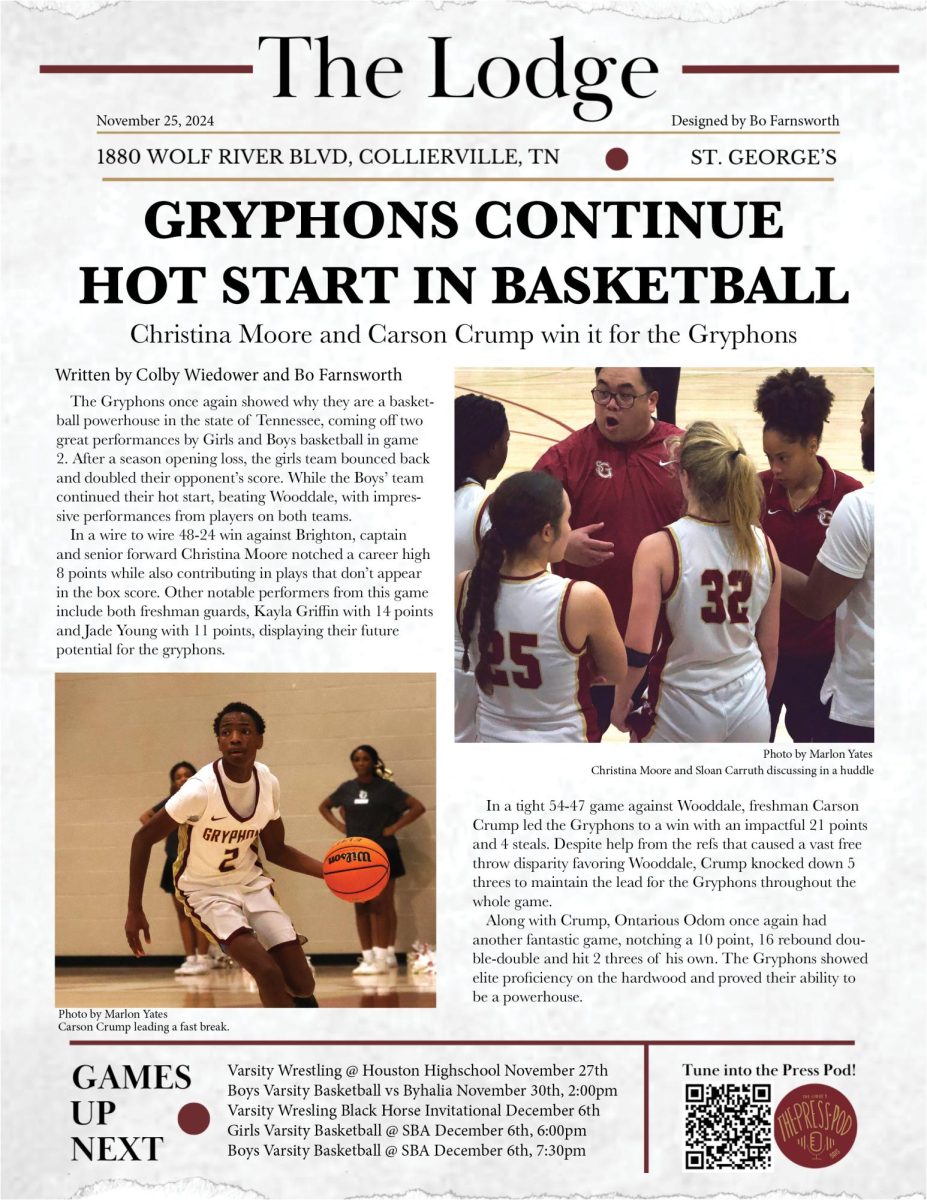Upper school students are being offered nine new courses under the social studies department.
The changes to the history track most directly impact freshmen, whereas the new religion courses offered are more widely available to students across grade levels, with each new class only lasting one semester.
Choosing from different courses to fulfill core requirements is a level of autonomy that has previously been limited to older students. Ms. Traci Erlandson, eighth-grade American History teacher and social studies department head, named program diversity as the primary reason for this change.
“[Having] the variety is something that is going to be good for, really, student retention… [the] more diverse a program we can offer students and the more options we can provide,” Ms. Erlandson said.
Being a holistic, diverse learning community is something that the school takes pride in. The school’s official website emphasizes the importance of the spiritual and social aspects of education.
Mr. Michael Masters, Collierville Campus chaplain and teacher of two new religion classes, provided insight into how he hopes these changes will impact student experience when it comes to religious studies. Specifically, he discussed the new Science and Spirituality class that he will be teaching this year.
“I went to seminary, but also have a science degree. So those have always been kind of tensions within my life… and I like that tension, and so I wanted to be able to explore that [in the Science and Spirituality class], not as polar opposites, but things that can be in dialog with one another…” Mr. Masters said.
The idea of embracing this tension continues into his Faith and Film class.
“[The] Faith and Film class is going to be more of looking at how theology presents itself through film, and [will] allow people as individuals to wrestle with their own theological identity,” Mr. Masters said.
As an Episcopal school, St. George’s has consistently emphasized the importance of science and religion existing in the same space, making the school stand out amongst other private schools in the area with more traditionalist ideals.
Mr. Seth Johnson, who teaches three new classes this year as well as Advanced Placement World History, was heavily involved in the creation process of these new courses.
Holocaust and Human Behavior, a religion credit available to juniors and seniors, serves as an example of Mr. Johnson’s goals for these new classes.
“[In Holocaust and Human Behavior] we focus around the main case study of the Holocaust… and I think where the religion part can tie in… is looking at the human behavior aspect here. What drives human beings, at their core, to do these actions?” Mr. Johnson said.
Mr. Johnson is no stranger to the idea of connecting history and philosophy to communicate broader, universal ideas about life to his students. One of the new freshman history credit options Mr. Johnson teaches, called Cultural Literacy: Judeo-Christian Foundations, is equally tied to this idea.
“[Cultural Literacy: Judeo-Christian Foundations] is intended [to communicate]… that the moral foundations of Western civilization, and increasingly global civilization is founded in this particular tradition of Judeo-Christian thought, primarily in the scriptures of the Hebrew Bible, Christian New Testament,” Mr. Johnson said.
The model for freshman history courses has changed significantly this year, as well. During semester one, instead of a World History I survey, students choose between Geography: Exploring our Modern World and Cultural Literacy: Judeo-Christian Foundations. In semester two, students’ options include an ancient history class at the honors-level, called Greatest Hits of the Pre-Modern World: Global Foundations and Modern World History, which is a standard-level class.
Mr. Johnson did raise concerns about potential missed material because of the new variety of options for freshmen.
“[Specifically] with Ancient World History… [some students] could just not have any of that in high school,” Mr. Johnson said.
This is a glaring issue in the new system to the social studies department, as thousands of years of history would essentially be entirely absent from some high-schoolers’ curriculum, and some of this history is essential to understanding the ideas that Mr. Johnson aims to discuss in his new semester courses.
“Now, they do get it with Mr. Ricketson in sixth grade,” Mr. Johnson said. “But [Ancient World History] was the one kids seemed least interested in, and… knowing geography, giving them that mental kind of visual space of being able to make categories and then put the stories into, we thought might be more helpful than more old empires.”
It is difficult to weigh the options, as St. George’s has never offered a geography course, an important subject that students across the country are lacking in.
Ultimately, however, Mr. Johnson believes that the addition of these new courses is a net positive.
“It helps reinforce part of [St. George’s] goal of student-centered learning and providing agency for students as early as 9th grade,” Mr. Johnson said.


